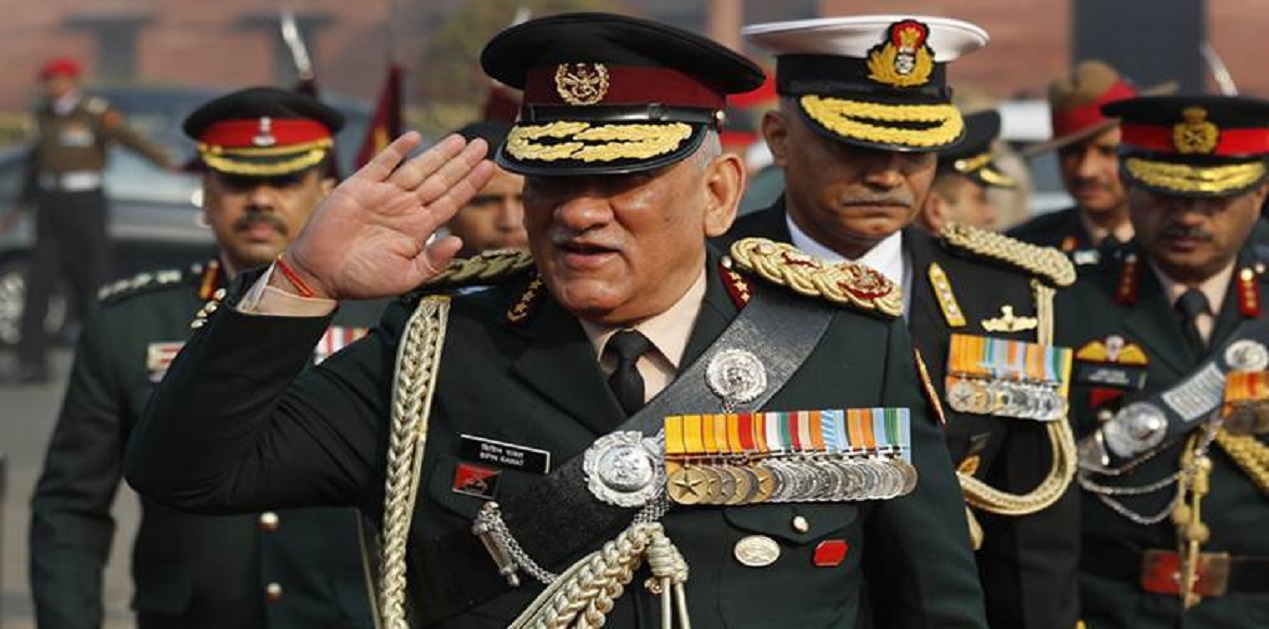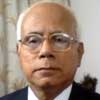Government of India has created the institution of Chief of Defence Staff (CDS) as a single point adviser to Raksha Mantri (RM) on all matters concerning the Defence Services of the country and as Secretary of a newly created Department of Military Affairs (DMA). A formal announcement to that effect has been made on 24th December, 2019 and the outgoing Chief of Army Staff, General Bipin Rawat appointed the first CDS with effect from 30th December, 2019 until further orders. The Allocation of Business Rules have also been amended on 30th December, 2019 by formally assigning a eight-point set of functions to the DMA. These functions encompass the Armed Forces of the Union, Integrated Headquarters comprising the three Services Headquarters, Works (no distinction has been made regarding Capital and Revenue Works) relating to the three Services, procurement exclusive to the Services except Capital acquisition, promoting jointness in procurement, training and staffing through joint planning and integration of their requirement, facilitation of restructuring of Military Commands, promoting use of indigenous equipment by the Services, etc.
This restructuring of higher Defence management with an integrative approach, on the face of it, appears to be quite an institutional change. It has to be seen how the CDS and DMA operates, the extent of cohesiveness in defence planning, jointness in defence effort and operational synergy, celerity in arriving at administrative decisions, optimizing in budget allocations and cost-effectiveness in the incurring of expenditure, is eventually achieved.
Viewed in a contextual or historical perspective, the Indian CDS neither resembles the British or US structures of higher defence management. It is natural for a country with a huge defence apparatus, having a unique strategic backdrop, and also distinct from the British, US or Western democratic nations in regard to strategic disposition and experience, to devise and adopt its own CDS system. Though there have been demands from the Services, these have not been in a uniform or homogeneous manner. The articulation of the role and responsibilities of an institution like that of the CDS may be discerned from the deliberations of the K. Subramanian Committee in the aftermath of the Kargil conflict with Pakistan in 1999, which had advocated bringing the Services Headquarters within the Government for integrated management of national security.
However, there are many grey areas on the role, executive functions and likely impact of the CDS system as now set up. First and foremost, the creation of CDS and DMA, with CDS heading the DMA, seem to be a half-hearted measure without clear delineation of responsibilities of CDS and the DMA in matters of obtaining appropriations or budgetary allocations, the expenditure sanctioning powers of the DMA and CDS as a secretary of that department. It is not clear whether, CDS will exercise full powers of `a department` under the Delegation of Financial Powers Rules, for sanctioning expenditure. The role of CDS in recommending and obtaining budget allocations in the Revenue category, is also not clear, notwithstanding government decision that CDS will be concerned with procurement exclusive to the Services except Capital acquisitions. If the existing arrangements remain with the entire Defence Services Estimates` formulation, obtaining of appropriations from Parliament and rendering the accounts under the control of Department of Defence, then the DMS will be virtually an administrative unit or a cell or bureau of the Ministry of Defence. With the role of CDS being advisory and no executive or operational control over the Services, the CDS system may not be substantive or consequential in matters connected with planning, resource allocation and the incurring of expenditure.
In the above-narrated context, the role of CDS may virtually remain advisory. Perhaps, such an arrangement may be appropriate considering that, CDS will have no role in the chain of command on operational matters or and even in the logistics management domain. CDS, in his present incarnation will remain a four-star general or air chief marshal or admiral and a `first among equals` with no overriding authority in the executive, operational or financial spheres pertaining to the Services. Therefore, it would have been more appropriate to create the post of CDS as a part of the National Security Council, and not as head of a department like DMA. As against the objective of attaining jointness and achieving common parameters and specifications in matters of logistics – which would enable more efficient inventory management and economy, the CDS can only function as a moderating advisory authority in the above matters, and the DMA may only add another tier in the decision-making process.
Some fundamental issues as follows need to be resolved. In matters concerning sanction of Revenue expenditure proposals beyond the delegated powers of Services Headquarters, it is not clear whether the DMA and CDS be the final authority under Ministry of Defence, or such proposals have to be approved by Department of Defence. Similar issues are looming in respect of Works Plan of the Services. It is doubtful if the Government`s intention is to entrust full Revenue budget formulation of the Services, to CDS and DMA. Control of the Revenue budgets of the Services imply many attributes of resource allocation and financial supervision and trade-offs with the Capital budgeting process. The delineation of responsibilities between DMS and Department of Defence, is not clear in the above regard.
The cardinal point is that, CDS will be the Principal Military Adviser to RM on all tri-Service matters. It is the advisory role which is of essence rather than the executive functions as secretary of DMA. In this context, it may have been apposite to strengthen the institution of the Chiefs of Staff Committee, and provide the administrative wherewithal of this committee to the CDS for discharging his advisory functions. Such an administrative arrangement would have been logical for the CDS, who has been assigned function of Permanent Chairman of the Chiefs of Staff Committee as per the Government orders.
The CDS will have an adequate advisory role by virtue of his membership of the Defence Acquisition Council, as Military Adviser to the Nuclear Command Authority and head of tri-Services organizations. Assigning inter-Services prioritization to Capital acquisition proposals, also fits into this role. However, assigning the responsibility for implementing Five-Year Defence Capital Acquisition Plans and Two-Year Roll-on Annual Acquisition Plans, to CDS, does not seem to be a realistic institutional arrangement, particularly because, formulation, approval and execution will beyond his remit.
(The paper is the author’s individual scholastic articulation. The author certifies that the article/paper is original in content, unpublished and it has not been submitted for publication/web upload elsewhere, and that the facts and figures quoted are duly referenced, as needed, and are believed to be correct). (The paper does not necessarily represent the organisational stance... More >>
Image Source: https://images.indianexpress.com/2020/01/bipin-rawat-759-1.jpg?w=759











Post new comment